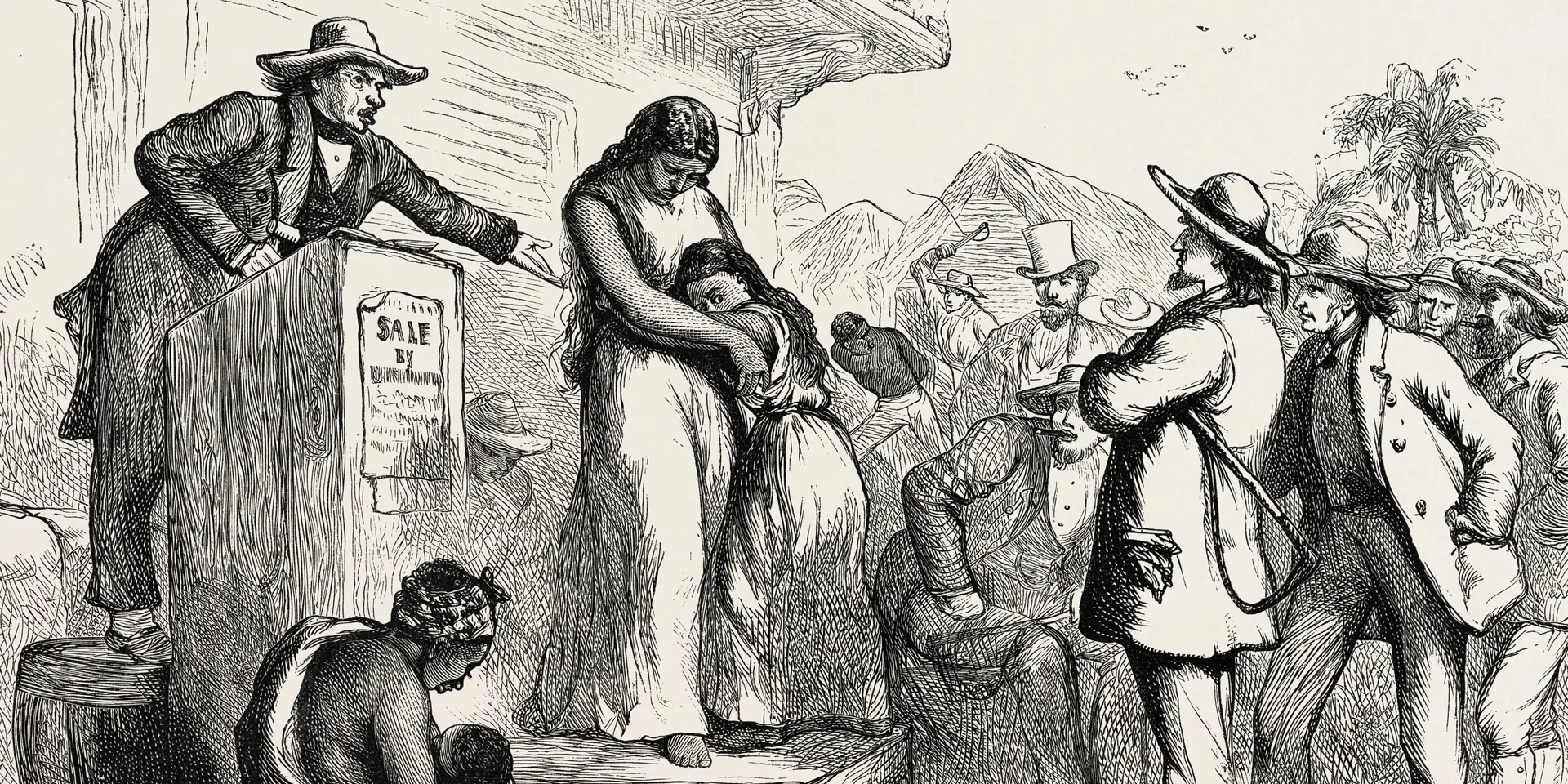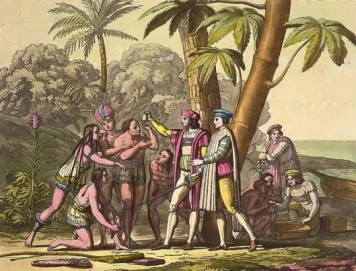Silent Rage: Unveiling the Child's Struggles in Illegal Cacao Farming
- Ethan Swift

- Jul 15, 2024
- 7 min read
Uncover the power of advocating for children in this article about the rights of children.

Speaking for the Children
In the world of chocolate, there exists a hidden darkness that remains unheard, or forgotten by millions. It is a story of children, their rights, and the responsibility we all share to ensure their well-being. Pono Cocoa, a passionate advocate for change, aims to shed light on these issues and give a voice to those who have long been silenced. Pono Cocoa knows and acknowledges in crisis situation, children, won't through a riot. Maybe a fit. Thats it. These children in this article, are assumed to be trafficked from Burkino Faso and Mali to West Africa.

Pono Cocoa Represents Unheard Millions
When it comes to child labor in the cocoa industry, the statistics are staggering. It is estimated that over two million children are engaged in hazardous work on cocoa farms, often under deplorable conditions. Pono Cocoa believes that every child deserves a childhood free from exploitation and is dedicated to making a tangible difference in their lives. We call on OFI, SAF-CACAO, BARRY CALLEBAUT and CARGILL to immediately desist all purchasing and procesing of cacao and/or cocoa beans and paste/liqour. As well as enforce the US law on the 70% of illegal chocolate in the USA so that it is forced to leave the country, and never enter again. Then the people farming it, can stop. We think, they would want to stop being forced to work everyday with out pay. Its against all human-rights, but just an assumption....
The children, some as young as four years old, are often forced to work long hours in the grueling heat, exposed to harmful pesticides and dangerous tools. Many of them are denied access to education and proper healthcare, perpetuating a cycle of poverty and exploitation. Pono Cocoa recognizes the urgency of this issue and is committed to sourcing cocoa beans ethically, ensuring that no child is subjected to such inhumane conditions in the production of their products. There are reports of torture, abuse and trafficking, by the millions.
The Talk

Having difficult conversations about child labor and human rights in the cocoa industry is essential. And we are the only ones doing it, not manipulating the narrative. Pono Cocoa encourages dialogue amongst consumers, companies, and governments alike. By bringing attention to these issues, we can collectively work towards meaningful change.
Child labor in the cocoa industry is a complex issue that requires a multi-faceted approach to address. We think we've solved it. Check out our pamphlet here.
Furthermore, the impact of child labor extends beyond the individual children involved, affecting the social and economic fabric of entire black communities. By engaging in conversations about this chocolate apartheid or war, we can raise awareness and foster a sense of responsibility among stakeholders to uphold human rights and ensure certified slave-free practices in the cocoa supply chain. Through collaboration and advocacy, we can certify every chocolate-maker in the industry, successfully.

The Impact
Pono Cocoa's efforts have not gone unnoticed. Through education and advocacy programs, they have successfully raised awareness about the plight of children in cocoa-growing regions. By enabling consumers to make informed choices, Pono Cocoa empowers individuals to support ethical practices and encourage industry-wide reforms.

Here are the tangible results of our efforts over the past year:
Social Media Campaigns:
Campaigns Launched: 3 major awareness campaigns on slave-free chocolate brands
Engagement: Over 1 million impressions and 50,000 engagements across platforms
Paid Promotions: $1,000 invested in targeted ads, promoting certified brands, helping them reaching a global audience.
Fundraising Efforts:
GoFundMe Campaign: Raised $1,000 to support cocoa farm repair due developer damage known as "sand-winning". Hundreds of acres of farms have been uprooted for the sand.
Keynote Talks: Conducted 3 compensated keynote talks, generating sign-ups and follows online as well as future potential bookings.
Community Investments:
Funds Sent to Farms: $1,000 distributed directly to partner farms for wages and development (School and road repair)
Certified Slave-Free Farms: 15 new farms and makers certified as slave-free
Certified Slave-Free Chocolate Makers: 4 new Certified slave-free chocolate makers
Infrastructure Projects:
Roads Built: Constructed 1 new farm road, improving access for a certified slave-free cacao farming community
Schools Repaired: Renovated 1 schools roof, benefiting 300 students
Value Added to Farmers:
Financial Growth: Each farmer/member saw an average income increase of $200 due to our added-value practices
Volunteers
Central to Pono Cocoa's mission is the small army of dedicated volunteers who selflessly contribute their time and skills. These open-minded, passionate individuals assist in various capacities, ranging from organizing awareness campaigns to implementing slave-free chocolate bars. Together, they embody the power of collective action in effecting positive change, through changing your chocolate.

Each volunteer brings a unique set of skills and experiences to the table, enriching the collaborative efforts of Pono Cocoa. Some volunteers are seasoned professionals in fields such as marketing, event planning, or community outreach, while others offer fresh perspectives and innovative ideas. This diverse range of expertise allows for a dynamic approach to tackling issues and implementing solutions. Check out our People Page for more.
Furthermore, the sense of community and camaraderie among Pono Cocoa's volunteers is palpable. Regular team meetings and volunteer appreciation events foster a supportive environment where individuals can connect, share insights, and build lasting friendships. The bonds formed through shared passion and dedication to the cause create a strong foundation for the organization's continued success. We have a GREAT, PRODUCTIVE COMMUNITY! Wanna Join?
Booking
Interested in our keynotes? Book us here or book a free discovery call. We are the leading human-rights in cocoa charity non-for-profit in the world. Our experts can be booked internationally and speak at your event, mastering the overtone, equiping your attendees with the clearest understanding of solutions to cocoa exploitation ever.
When you book with Pono Cocoa, you become part of a global movement dedicated to promoting ethical practices in the cocoa industry. Your involvement can make a significant impact on the lives of those involved in cocoa farming, ensuring livable wages and human-rights for all.
Volunteering with Pono Cocoa offers a unique chance to immerse yourself in the world of sustainable cocoa production. You will have the opportunity to work alongside experienced farmers, learning about the intricate process of growing and harvesting cocoa beans. Through hands-on experience, you can gain a deeper understanding of the challenges faced by cocoa farmers and the importance of supporting ethical sourcing practices.
Through his work with Pono Cocoa, our speaker and cocoa coach Ethan, has been able to make a tangible difference in the lives of children, farmers and chocolate-makers and factories. Ethan with the help of the board, sponsors and volunteers of Pono Cocoa has set a new standard for social responsibility in the Hawaii cocoa industry. His dedication to empowering marginalized communities and workers, serves as a shining example of how one individual's passion can spark meaningful change on a global scale.
Human Rights in Absent in Cocoa
In the world of cocoa, the violation of human rights is an all too familiar reality. Across many cocoa-producing regions, children are subjected to hazardous working conditions, denied access to education, and robbed of their childhood. Pono Cocoa aims to expose these injustices and hold stakeholders accountable for their actions. They are robbed of the chance to find the purpose of their lives!
The most pressing issue in the cocoa industry is child labor. According to the International Labour Organization (ILO), an estimated 2.1 million children are engaged in hazardous work in cocoa-growing areas of Côte d'Ivoire and Ghana. These are the worst forms of child-labor in the entire world and in our entire global supply chain.
Millions of cocoa farmers live in poverty, struggling to make ends meet due to fluctuating market prices and lack of access to resources and poverty cause this lack of human-rights. It's manmade. We created the scarcity that is driving this. By shedding light on these issues, Pono Cocoa is committed to the enforcement of human-rights in the cocoa industry.
UN's Sustainable Development Goals

The United Nations' Sustainable Development Goals (SDGs) serve as a comprehensive blueprint for achieving a more sustainable and equitable future for all. These 17 interconnected goals address a wide range of global challenges, from poverty and hunger to climate change and gender equality. By providing a shared vision and common framework, the SDGs aim to mobilize collective action and drive positive change on a global scale.

Pono Cocoa is deeply committed to supporting the UN's Sustainable Development Goals through its ethical and sustainable practices. By prioritizing fair trade partnerships and empowering local communities, Pono Cocoa contributes to Goal 1: No Poverty, by creating economic opportunities and improving livelihoods for farmers and their families. Additionally, Pono Cocoa's emphasis on education and skill-building programs aligns with Goal 4: Quality Education, as it helps equip individuals with the knowledge and tools they need to thrive in a rapidly changing world.
Cocoa and the SDGs
The cocoa industry plays a significant role in achieving several SDGs. Through sustainable farming practices, fair trade partnerships, and the elimination of child labor, cocoa can become a force for positive change. Pono Cocoa recognizes the potential for cocoa to contribute to the SDGs and actively works towards bridging the gap between industry practices and global development objectives.
One key aspect of cocoa's impact on the SDGs is its potential to alleviate poverty in cocoa-growing regions. By promoting sustainable farming practices and fair trade partnerships, cocoa farmers can earn a decent income, lifting themselves and their communities out of poverty. This not only aligns with SDG 1 (No Poverty) but also contributes to SDG 8 (Decent Work and Economic Growth) by creating opportunities for economic empowerment.
Furthermore, the issue of child labor in the cocoa industry is a significant challenge that must be addressed to fully realize cocoa's potential for positive impact. Pono Cocoa is committed to ensuring that all cocoa sourced for its products is free from child labor, in line with SDG 8.7, which aims to eradicate forced labor, modern slavery, and human trafficking. By prioritizing ethical sourcing practices, Pono Cocoa sets a standard for the industry and demonstrates how businesses can contribute to sustainable development goals while producing high-quality products.
Conclusion: Understanding Children's Rights
Children have the right to be protected from harm, the right to education, and the right to play. These rights, enshrined in various international conventions, are often violated in the cocoa industry. By understanding and advocating for children's rights, Pono Cocoa seeks to build a future where every child can grow and thrive, free from exploitation. We are just focused on the worst issue on the globe.
It is crucial to recognize that children's rights encompass a wide range of fundamental freedoms, privacies, sovereignties and protections that are essential for their well-being and development. These rights include but are not limited to the right to healthcare, the right to a clean environment, and the right to express their opinions and be heard. Upholding these rights is not only a moral imperative but also a legal obligation under international law.
Furthermore, the issue of child labor in the cocoa industry is deeply interconnected with poverty, lack of access to education, and limited opportunities for sustainable livelihoods. Addressing these root causes requires a multi-faceted approach that involves collaboration between governments, businesses, civil society organizations, and local communities. By investing in education, implementing fair labor practices, and supporting community development initiatives, lasting change can be achieved. It also makes the chocolate taste very bad. Chocolate with human-rights tastes better because, human-rights is the best flavor in chocolate.















Comments